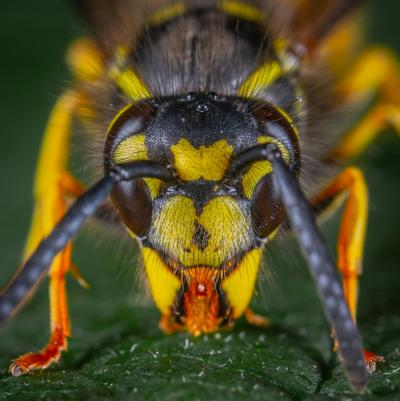Everybody has noticed it, there are wasps everywhere! Dodging the insects in beer gardens, BBQs and at picnics has become an Olympic sport this summer with everyone either swatting, wafting or (for the more fearful of us) running away as an ineffective way to control the wasps that have descended.
We are seeing an industry wide large increase in wasp call-outs this year, which confirms that wasp populations have risen. This year Cleankill had a 176% rise in wasp nest call-outs compared to 2024!
Our experts say it’s mainly due to the dry spring we’ve had. We had the warmest spring in 50 years which meant queen wasps could survive and the workers could successfully build more nests and establish colonies, resulting in more wasps come summer.
For many, this will be seen as bad news with wasps being the second most disliked insect in the UK (according to a YouGov survey. Spiders took the top spot despite having eight legs and not being insects). But it’s great news for the environment as wasps are natural predators and control the population of many pest insects. They are also pollinators, though their role is less significant than bees.
Unfortunately for our friend the bee, it has not been confirmed that there’s been a rise in their population. If anything, year on year, we are seeing a loss in bees which is concerning.
However, we have seen an increase in our other much-loved insects due to the warm weather. Ladybirds have seen a resurgence as warmer weather has led to more aphids which are a food source for ladybirds. The warmer conditions also allow them to complete life cycles quickly, resulting in more adults.
The beautiful butterfly has been in a general decline since the 1970s, but this year has been quite extraordinary with many different species being sighted early in the year which is a promising sign. The 2025 Big Butterfly Count concluded on August 10th which should confirm our predictions of it being a better year for butterflies, especially compared to last year which was declared as a ‘butterfly emergency’ when the lowest numbers were ever recorded!
So, overall, it has been a successful year for insects. As we learn how crucial insects are to our environment, it’s vital we learn to live alongside them. We only remove wasp nests when they pose a danger to health, as wasp stings can be fatal for some. That’s why, if you do have a wasp issue in or around your property, it’s vital to call in a trained professional to deal with it safely and efficiently. Give one of our friendly team members a call today: 020 8668 5477.
